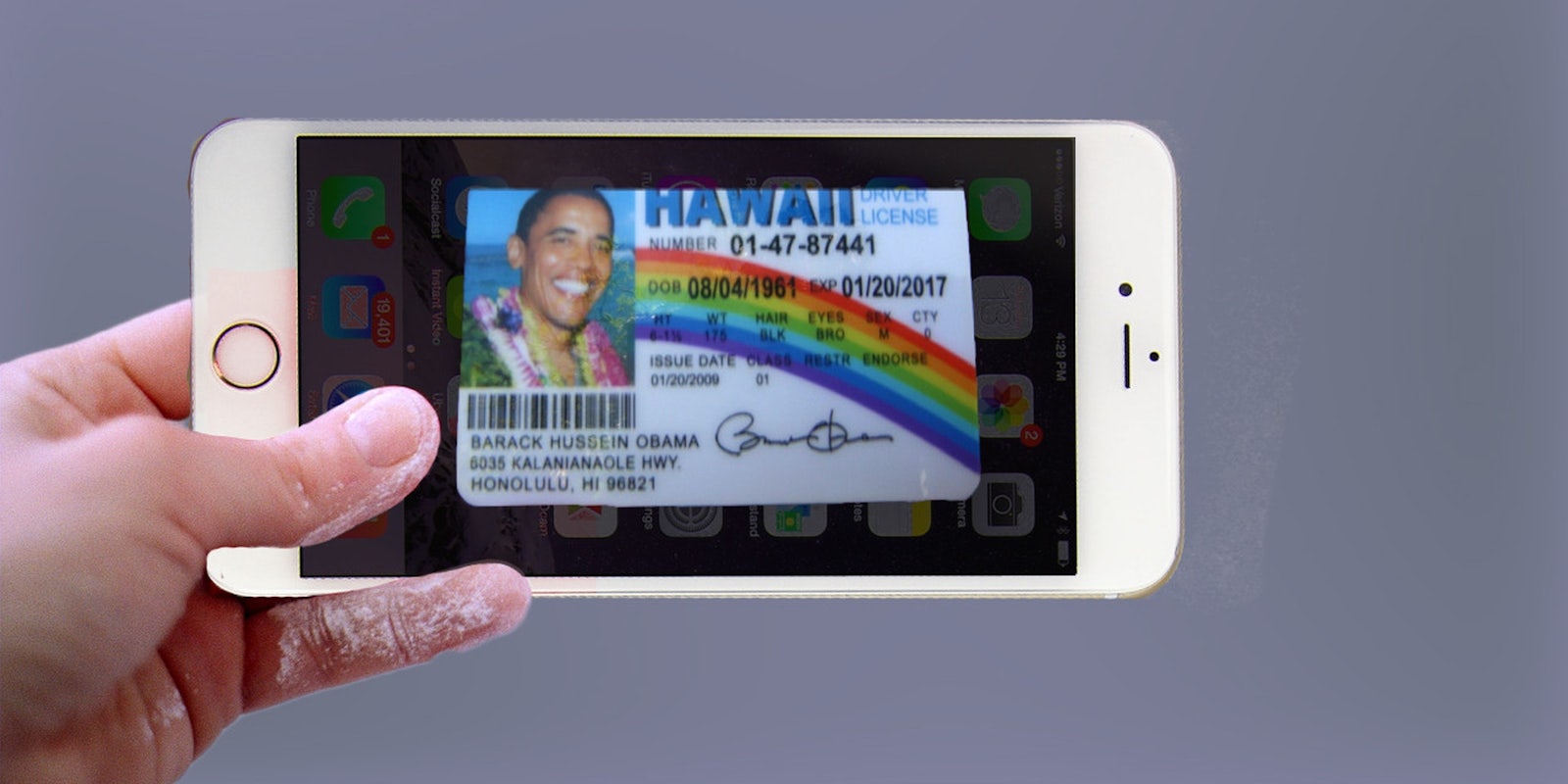Iowa will soon be the first state in the U.S. to offer driver’s licenses on a mobile application. As early as next year, Iowa residents will be able to download a mobile application provided by the Iowa Department of Transportation that will contain a digital version of their driver’s licenses.
The mobile identification card will contain the same information as a plastic driver’s license, including a scannable bar code, and will be accepted by police officers and Iowa airport security. Citizens will be able to use the app to automatically update their address, license suspensions, or any information that would otherwise be outdated on a plastic driver’s license if they didn’t get it renewed in the five to seven years between issue and expiration dates.
“Phones are such an important part of people’s lives right now—you carry it with you everywhere, and you carry your ID with you,” Andrea Henry, communications director at the Iowa DOT said in an interview with the Daily Dot. “It was a natural progression to move the ID to the phone.”
The application will require a pin number to access, as well as have biometric security measures like fingerprint or facial recognition to ensure only the ID holder can access it. The Iowa DOT is working with a third-party developer to build the software, which will take at least a year. Iowa government employees will be among the first to test the application with state-issued phones in as little as six months, Henry said.
Though the convenience of having a driver’s license on a mobile device does seem appealing, the downsides could irk some potential customers. Police officers usually take individual’s driver’s licenses back to their cars during traffic stops to record information, and if the phone is unlocked to display the identification, cops could theoretically access other parts of the device, and the user would have no idea.
With growing angst over police actions, citizens might not trust officers with their cellphones.
In June, the Supreme Court ruled that police must have a warrant to search through content on citizens’ mobile devices, but that didn’t stop law enforcement officers in California who were caught sharing risqué photos from the devices of women they arrested, behavior they considered a “game.” And in many situations involving police, citizens want to film cops to document their behavior—if an officer has your smartphone after you’ve been pulled over, filming would be impossible.
Apart from simply not trusting police officers, other technical and logistical concerns could render digital identification useless. If the phone battery dies or the screen shatters, so does your ability to hand over a driver’s license. Airports would have to accept mobile identification more widely, because although mobile IDs will be acceptable for Iowa airport security, other airports might not agree.
Mobile identification wouldn’t be entirely unprecedented, however. Already 37 states accept digital proof of auto insurance, so if you get pulled over you can simply pull out your mobile phone instead of digging through a glove box, and most airports already accept e-tickets at security checks.
Iowa’s virtual IDs won’t be mandatory. Drivers can get both their virtual licenses and traditional licenses at the DMV, but will be able to choose either one or the other, or both.
H/T The Des Moines Register | Photo via flossyflotsam/Flickr (CC BY 2.0) | Remix by Fernando Alfonso III
